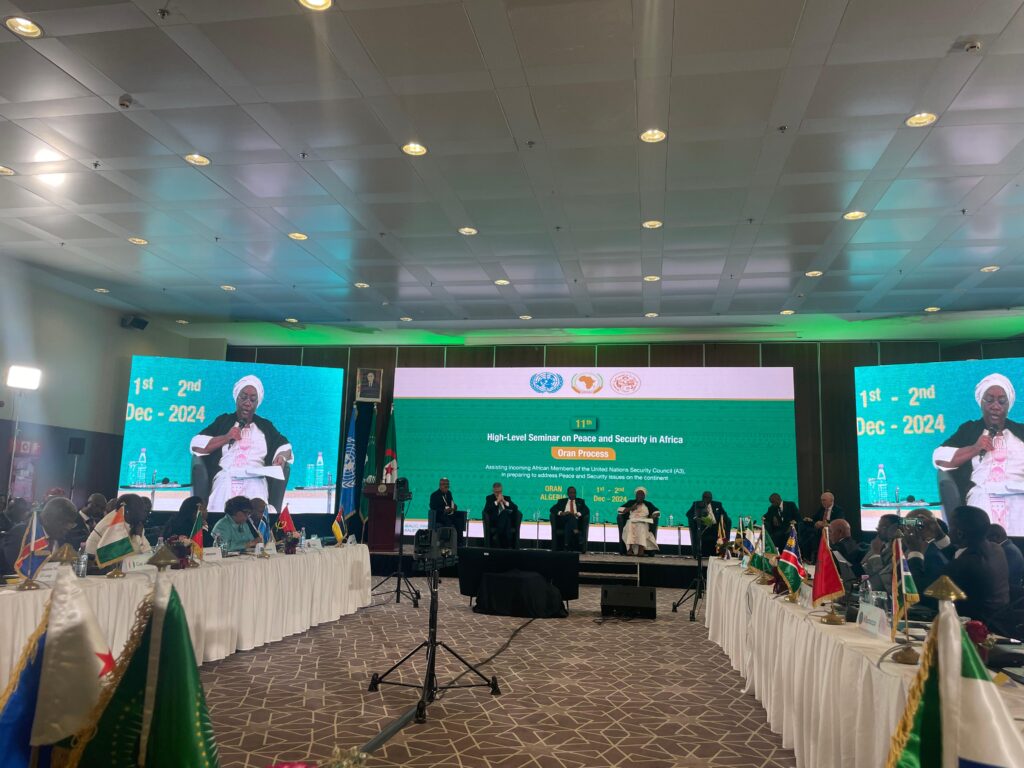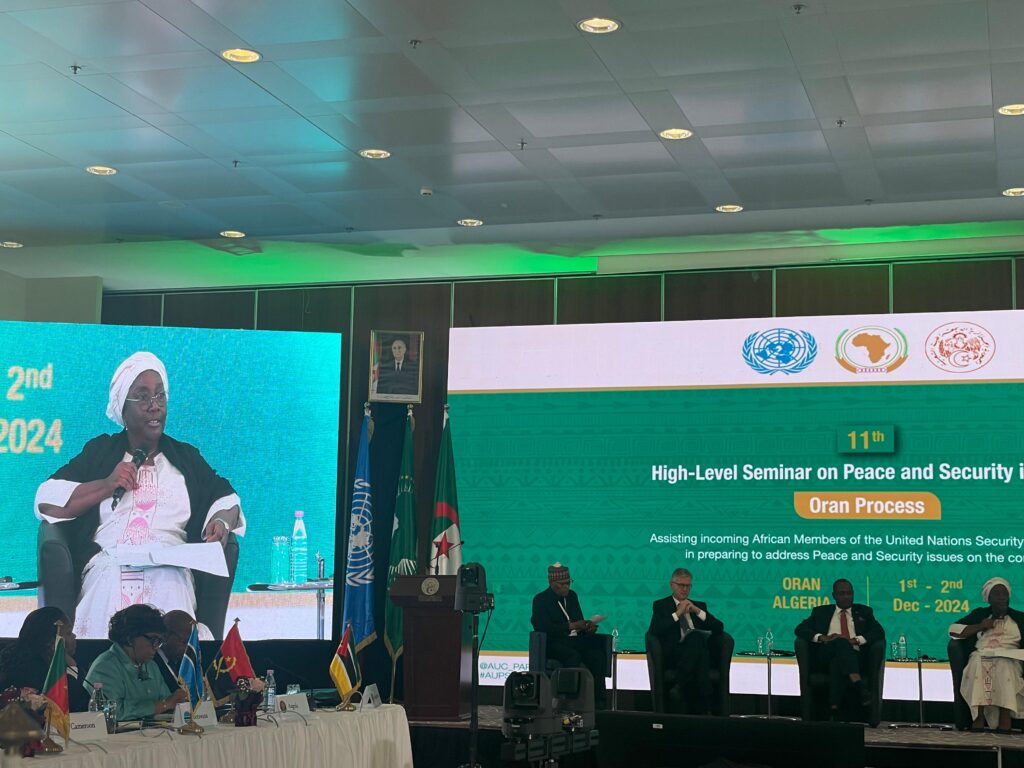Oran, Algeria – At the 11th High-Level Seminar on Peace and Security in Africa, also known as the Oran Process, Sierra Leone’s Deputy Minister of Foreign Affairs, Mrs. Frances Piagie Alghali, highlighted Sierra Leone’s pivotal role in advancing African peace and security issues, particularly through its leadership at the United Nations (UN) Security Council. The seminar, hosted by the African Union (AU), focuses on strengthening cooperation between the AU Peace and Security Council, and African members of the UN Security Council, plus Guyana (A3+).
The event centered on two critical topics: building integrated capacity for counter-terrorism and violent extremism in Africa, and the implementation of the “Pact for the Future,” which includes reforms to the UN Security Council and updates on UN Security Council Resolution 2719 (2023).
In her intervention, Mrs. Alghali, who participated in the panel discussing the “Pact for the Future,” underscored the ongoing impetus for reform within the UN Security Council, a key issue for African nations. She pointed to the leadership of Sierra Leone’s President, H.E. Dr. Julius Maada Bio, who chairs the African Union Committee of Heads of State and Government on UN Security Council reform (“C-10”). Deputy Minister Alghali stressed that reforming the Security Council is vital for ensuring a more equitable and balanced representation of African interests on the global stage.

“Africa has long called for the reform of the UN Security Council to address historical injustices and ensure fair representation for the continent,” Mrs. Alghali remarked. “The adoption of the ‘Pact for the Future’ represents a significant step forward in this process.”
The Pact, she noted, establishes a shared vision for reform, with a particular focus on rectifying the historical marginalization of Africa in global decision-making. She also referred to the commitment to improving the representation of underrepresented and unrepresented regions, as outlined in Action 39 of the Pact.
Mrs Alghali also recounted a significant development during Sierra Leone’s presidency of the UN Security Council in August 2024. During a historic, landmark debate on the “Maintenance of International Peace and Security,” the country provided a platform for an open dialogue about Africa’s historical underrepresentation. Notably, just a month later, the United States, a permanent member of the Security Council, publicly expressed support for allocating two permanent seats to Africa, a major shift in global diplomatic dynamics.
The Deputy Foreign Minister emphasized that moving forward, it is crucial for Africa to maintain momentum in the reform process. She outlined three key actions to ensure the successful implementation of the reform commitments:
First, Advancing the Reform Process: Africa must continue to drive the process in line with General Assembly Decision 62/557 and other relevant resolutions that call for Security Council reform. The principles guiding the reform process, outlined in the Pact for the Future, should serve as a foundation for continued dialogue and action.
Second, Building Support for Africa’s Position: The adoption of the Pact has already spurred significant international backing for the African position. Over 140 Heads of State at the UN General Assembly in 2024 reiterated the need for Security Council reform and expressed support for the Common African Position. Ongoing engagement with the P-5 and other member States and Interest Groups is essential to maintain momentum.
Third, Seizing Opportunities for Implementation: Concrete steps must be taken to implement decisions made at African Union summits, including the C-10 Consultative Summit. These actions include developing an African Union model for reform and engaging with the P-5 to advocate for Africa’s representation in the UN Security Council.
After sharing some recommendations on the second aspect of the implementation of UN Security Council Resolution 2719 (2023), Deputy Minister Alghali concluded her address by reaffirming Sierra Leone’s commitment to advancing Africa’s interests at the UN. While significant progress has been made, she stressed the importance of sustaining the momentum to ensure that the reform of the Security Council is both timely and effective.
The Sierra Leone delegation to the seminar also included Ambassador Dr. Michael Imran Kanu, Sierra Leone’s Permanent Representative to the UN, Ambassador Harold Saffa, Permanent Representative to the African Union, the Head of Chancery of the Sierra Leone Embassy in Addis Ababa, Mr. Mohamed L. Khan, and the Political Coordinator at the Permanent Mission in New York, Mr. Alan E, George.



